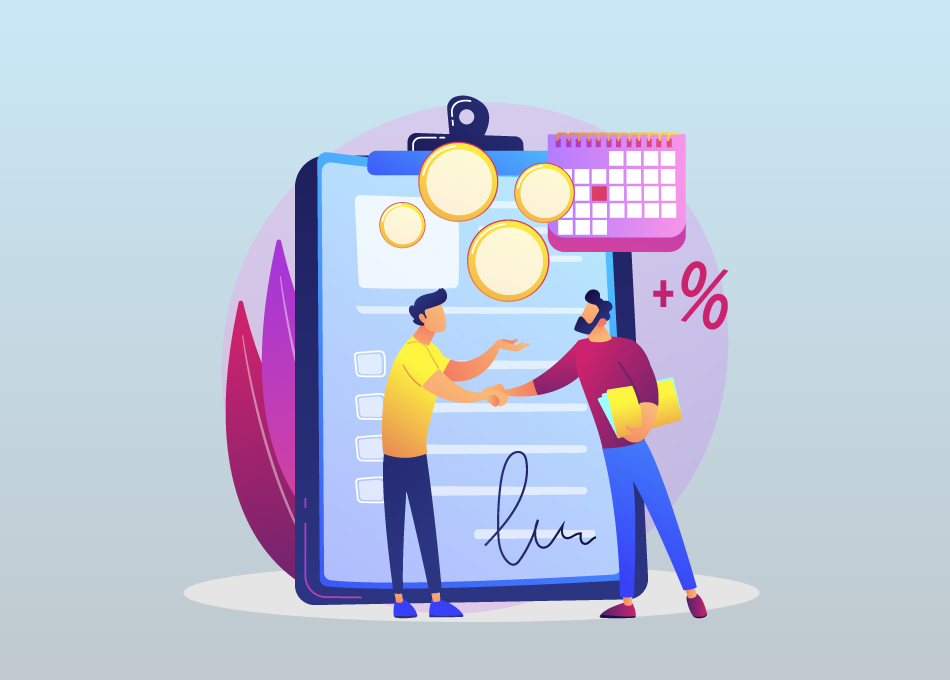Government employees in India enjoy a host of financial benefits, one of which is easy access to personal loans. These loans cater to various needs, from managing unexpected expenses to funding big purchases or family events. With competitive interest rates and flexible terms, personal loans for government employees are an attractive option. In this article, we will explore the features, benefits, eligibility, and other essential aspects of these loans, making it easier for you to make informed financial decisions.
Features of Personal Loans for Government Employees
- Low-Interest Rates:
Government employees are perceived as low-risk borrowers due to job security and steady income. As a result, many banks and financial institutions offer personal loans for government employees at significantly lower interest rates compared to private-sector employees. - High Loan Amount:
The loan amount offered can be substantial, depending on the applicant’s salary and repayment capacity. Government employees are generally eligible for larger loan amounts, making it easier to finance big-ticket items like home renovations, weddings, or higher education for children. - Flexible Tenure:
Personal loans for government employees often come with flexible repayment tenures ranging from 1 to 7 years, allowing borrowers to choose the tenure that best suits their financial situation. - Quick Processing:
Many banks have streamlined their loan processing systems, especially for government employees. As a result, loans are often disbursed quickly, sometimes within 24 to 48 hours, making it an ideal option for urgent financial needs. - Minimal Documentation:
Since government employees have stable and verifiable income, the documentation process is relatively simple. Most lenders require basic identity proof, income proof (salary slips or bank statements), and employment proof, leading to faster approval.
Benefits of Personal Loans for Government Employees
- No Collateral Required:
Unlike some other loans, personal loans are unsecured, meaning you do not need to pledge any assets as collateral. This provides peace of mind, especially when facing emergencies. - Fixed Interest Rates:
Personal loans for government employees typically come with fixed interest rates, ensuring that your EMIs remain consistent throughout the loan tenure. This makes it easier to plan your monthly finances. - Customizable EMI Options:
Lenders often provide EMI calculators to help borrowers determine their repayment options. Using a personal loan EMI calculator, you can adjust the loan tenure and amount to find a monthly payment that fits comfortably within your budget. - Prepayment and Foreclosure Facilities:
Most lenders allow borrowers to prepay or foreclose their loans without hefty penalties. This is beneficial if you receive a bonus or additional income and wish to clear your debt early, saving on interest payments. - Special Offers for Government Employees:
Certain banks offer exclusive schemes for government employees, such as lower processing fees or preferential interest rates. These perks make personal loans for government employees even more appealing.
Eligibility Criteria for Personal Loans for Government Employees
While eligibility criteria may vary from one lender to another, the basic requirements for government employees are generally straightforward:
- Employment Status:
The applicant must be a permanent employee of central or state government departments, public sector undertakings (PSUs), or other government bodies. - Age:
The minimum age to apply is usually 21 years, and the maximum age should not exceed 60 years at the time of loan maturity, in most cases. - Income:
Most lenders require a minimum monthly income of Rs. 15,000 to Rs. 20,000, depending on the loan amount. - Credit Score:
A good credit score (above 700) increases your chances of loan approval and getting a lower interest rate.
How to Apply for a Personal Loan
Applying for a personal loan for government employees is a simple process, and many banks now offer both online and offline application options. Here’s a step-by-step guide to applying for a personal loan:
- Research and Compare:
Different banks offer different interest rates, loan amounts, and tenures. Take the time to compare offers from multiple lenders before deciding. - Check Eligibility:
Before applying, check the eligibility criteria for the loan to ensure you meet the basic requirements. - Use an EMI Calculator:
Before finalizing the loan, use an EMI calculator to estimate your monthly repayment amount. This tool helps you adjust the loan amount or tenure to fit your budget. - Submit Required Documents:
Gather the necessary documents, such as identity proof (Aadhaar, PAN), address proof, income proof (salary slips), and employment details. Some banks may also require your credit score report. - Submit the Application:
Once you’ve chosen a lender and prepared the documents, submit your application online or in person at the bank branch. - Approval and Disbursement:
After submitting your application, the bank will process your loan. Once approved, the loan amount will be disbursed directly to your bank account.
Conclusion
A personal loan for government employees offers numerous advantages, from low-interest rates to flexible repayment options. Whether you’re planning a wedding, managing medical expenses, or upgrading your home, these loans can provide financial relief without added stress. By using tools like an EMI calculator, you can plan your repayments efficiently and secure a loan that fits your budget and needs. Before applying, make sure to compare different lenders and offers to get the best deal possible.


